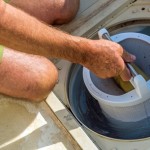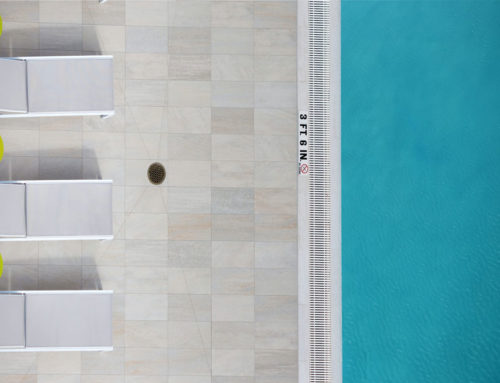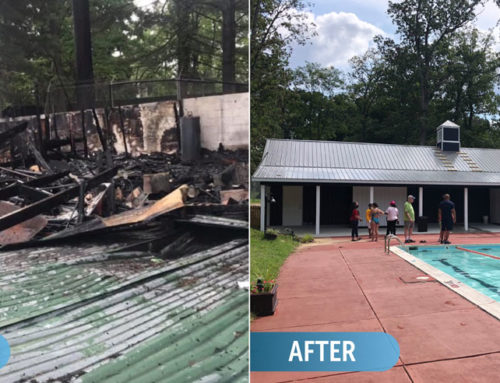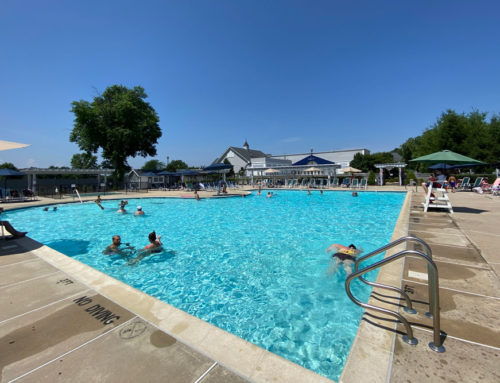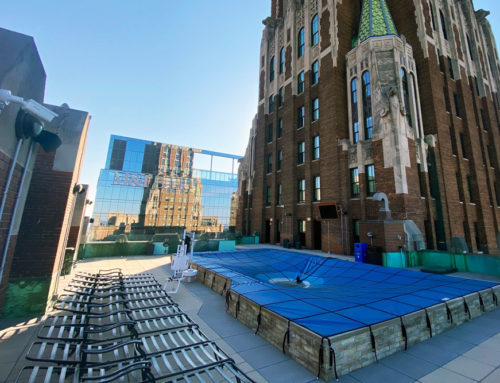Every pool should come with a suite of chemicals that keeps the pH, alkalinity and several other cleaners and sanitizers within a range that’s safe for swimmers. If this balance goes either way, there are dozens of sanitizers and shocking agents you can use to bring your pool back to acceptable levels.
Chlorine is one of the most common cleaning solutions in pool maintenance, and unless you hire out a service that handles all your chemical needs for you, odds are that you have one or four bottles of it on-hand. While chlorine will do the trick four out of five times, there are certain water conditions that may create the perfect situation for what’s known as “chlorine demand.”
Why chlorine?
In an interview with LiveScience, Mary Ostrowski, director of chlorine issue at the Chlorine Chemistry Division of the American Chemistry Council, explained how chlorine became one of the most widely used agents on the market. When chlorine dissolves in water, it becomes hypochlorous acid, a weak substance that poses little threat to humans but is very efficient at reducing the number of contaminants in your pool by breaking through their cells walls and dissolving what’s left of the bacterium, germ or anything else unfortunate enough to get in its way.
“Hypochlorous acid from chlorine-based pool sanitizers is really the key to germ destruction in the water,” Ostrowski told LiveScience. “For swimming pools, chlorine is a really good broad-spectrum destroyer of pathogens that could otherwise make swimmers sick.”
Supply and chlorine demand
If you swear by chlorine as a sure-fire solution for any contamination that might affect your pool, you might be surprised to learn that there are times when chlorine is as ineffective as pouring more water into a filled pool. This is what pool maintenance professionals refer to as “chlorine demand.”
Karen Rigsby, leader of technical services for water purification firm BioLab, told Aqua magazine that chlorine lock can occur when you let too many contaminants build up in your pool. When you pour chlorine in, it may not show up on test strips or water kits because the bacteria or algae is overpowering the chemicals. The amount of chlorine you have to add is the “demand.”
“Let’s say your spouse went on a shopping spree and overdrew your checking account by $500,” Rigsby told the news source. “Then you go to the bank and put in $100. Do you have any money? Of course not. You have to continue putting money in the bank until you’ve overcome that deficit.”
She continued to explain how demand compounds – any materials that’s attacked by chlorine on contact – raise the demand of your entire pool. These compounds may be micro-organisms like algae or human material like dead skin or hair.
So how do you overcome chlorine demand and get your pool looking good as new again? More chlorine, Rigsby said.
If you can add enough chlorine to your pool to supply the total demand created by the compounds in the water, you may just break through to the other side.
Don’t add too much
Because the chlorine you add to your pool works continuously to eliminate the contamination of bacteria or other materials, the amount of cleaner not actively working to sanitize your pool is called available chlorine, Pool Solution explained. Usually, the only thing the average swimmer will notice from high available chlorine levels is a slightly more potent pool smell – that humid, biting scent that lets swimmers know they’re almost in the water.
As much as you can, try to keep the chlorine levels of you pool between 1 and 4 parts per million. Otherwise, you may let your pool water shift too far out of balance the other way. Swimmers may experience irritated eyes and skin, as well as a particularly pungent odor as the excess amounts of chlorine cause organic matter in the pool to break down.
So much of pool management has to do with keeping things on an even keel, and handling chlorine is a perfect example of how tricky it can be. If you’re not comfortable with regulating your pool’s water safety or have too much on your plate, consider a pool maintenance service to take care of it for you.

